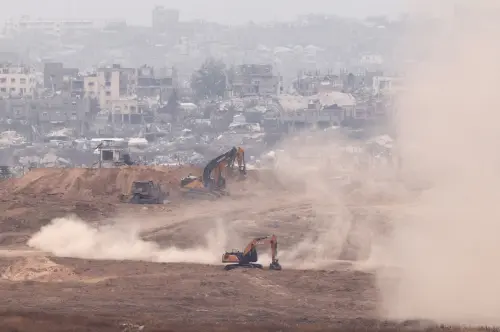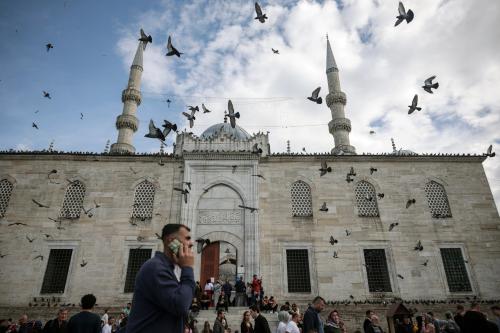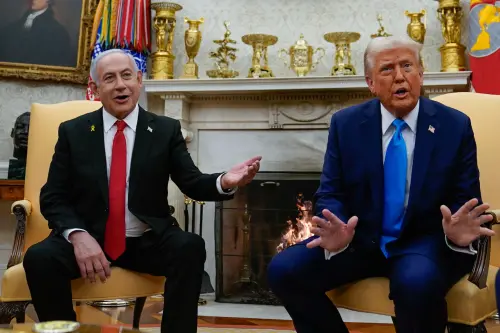

Khalil Shikaki, director of the Palestinian Center for Policy and Survey Research in Ramallah, has joined the Saban Center for Middle East Policy at the Brookings Institution as a visiting scholar for the next three months. Considered the preeminent expert on Palestinian public opinion, Shikaki has conducted more than seventy-five public opinion polls among Palestinians in the West Bank and Gaza Strip since 1993.
Shikaki, who also is associate professor of political science at Birzeit University in Birzeit (Ramallah), will conduct research and write a monograph on peacemaking and reform in Palestinian society.
The director of the Saban Center, Martin Indyk, welcomed Shikaki to Brookings: “We are delighted that Khalil has become the Saban Center’s first visiting scholar,” said Indyk, who was assistant secretary of State for the Near East and twice U.S. ambassador to Israel. “He brings a unique combination of scholarly achievement, policy expertise, thoughtful insights, and first-hand research data on Palestinian attitudes towards the peace process and the reform agenda.”
Before joining Birzeit University, Shikaki was an associate professor and dean of scientific research at al-Najah National University in Nablus, and has been a visiting professor at the University of Wisconsin-Milwaukee, the University of South Florida, and Columbia University. From 1993-1999, he was editor of al-Siyasa al-Filastiniyya, a quarterly journal of Palestine policy.
Among Shikaki’s publications are The Israeli-Palestinian Peace Process: Oslo and the Lessons of Failure (co-editor with Robert Rothstein and Moshe Ma’oz, Sussex Academic Press, 2002), and “Palestinians Divided,” Foreign Affairs, January/February 2002.
Dr. Shikaki’s visiting fellowship has been made possible by the generous support of Mr. Hassib Sabbagh.
The Saban Center for Middle East Policy, housed in the Brookings Foreign Policy Studies Program, promotes research and educational programs on critical issues that affect U.S. interests in the region, including the Arab-Israeli conflict, political dynamics in the Islamic world, developments in Iran, and the challenges of regime change in Iraq. The Center will have a core group of full-time Middle East specialists complemented by visiting fellows from the Arab world and Israel.

Omar Shaban
April 24, 2025

Sharan Grewal
April 2, 2025

Shibley Telhami
March 26, 2025